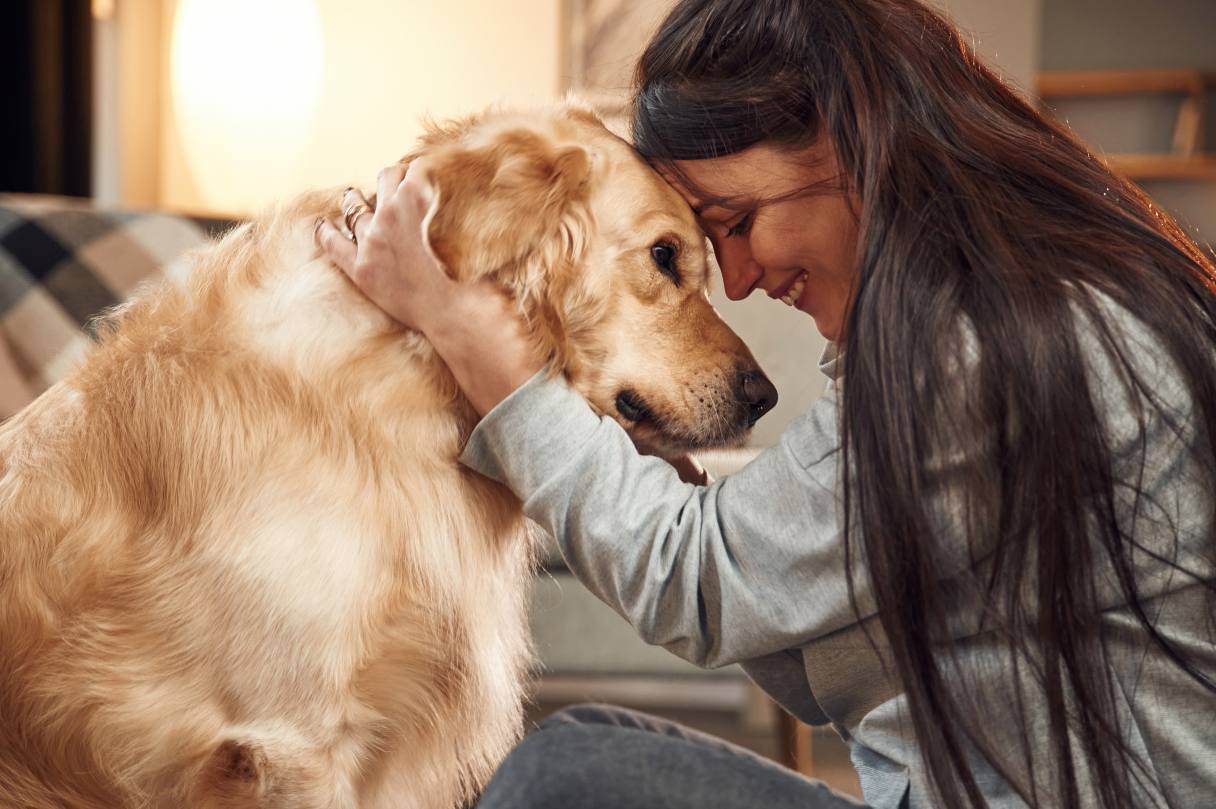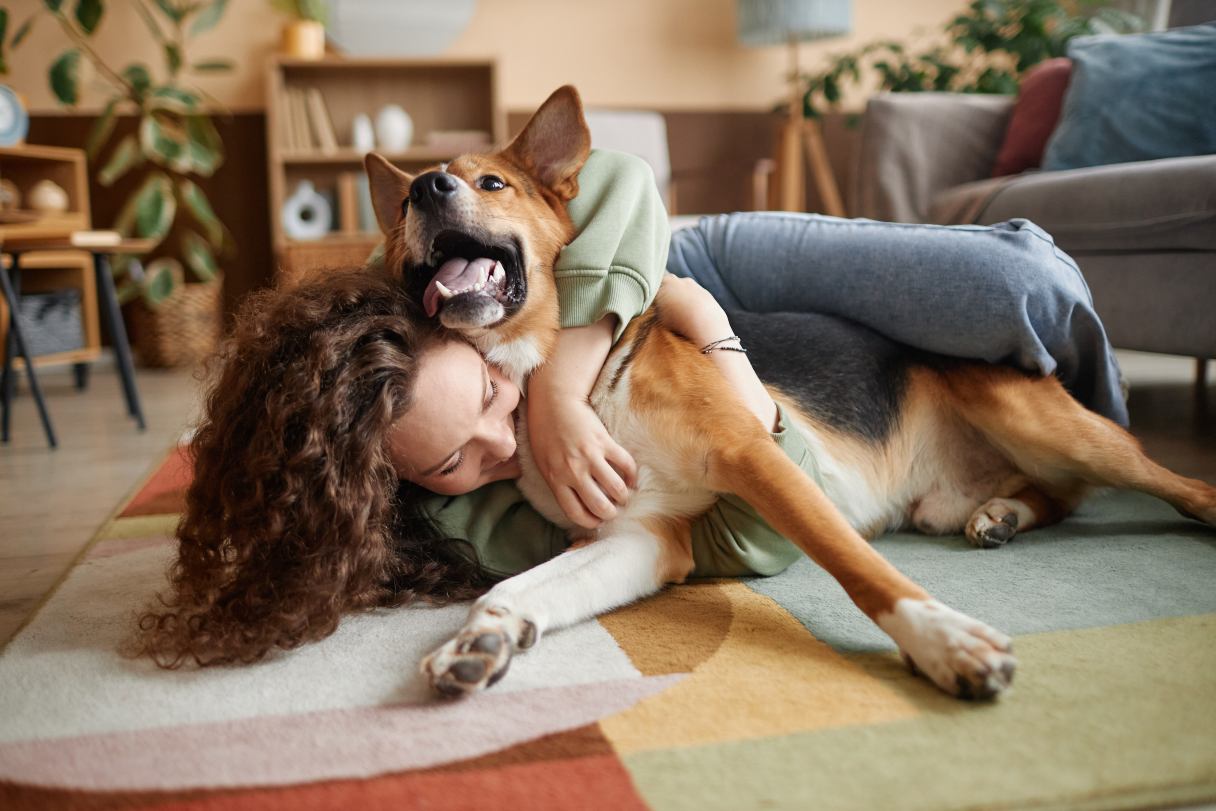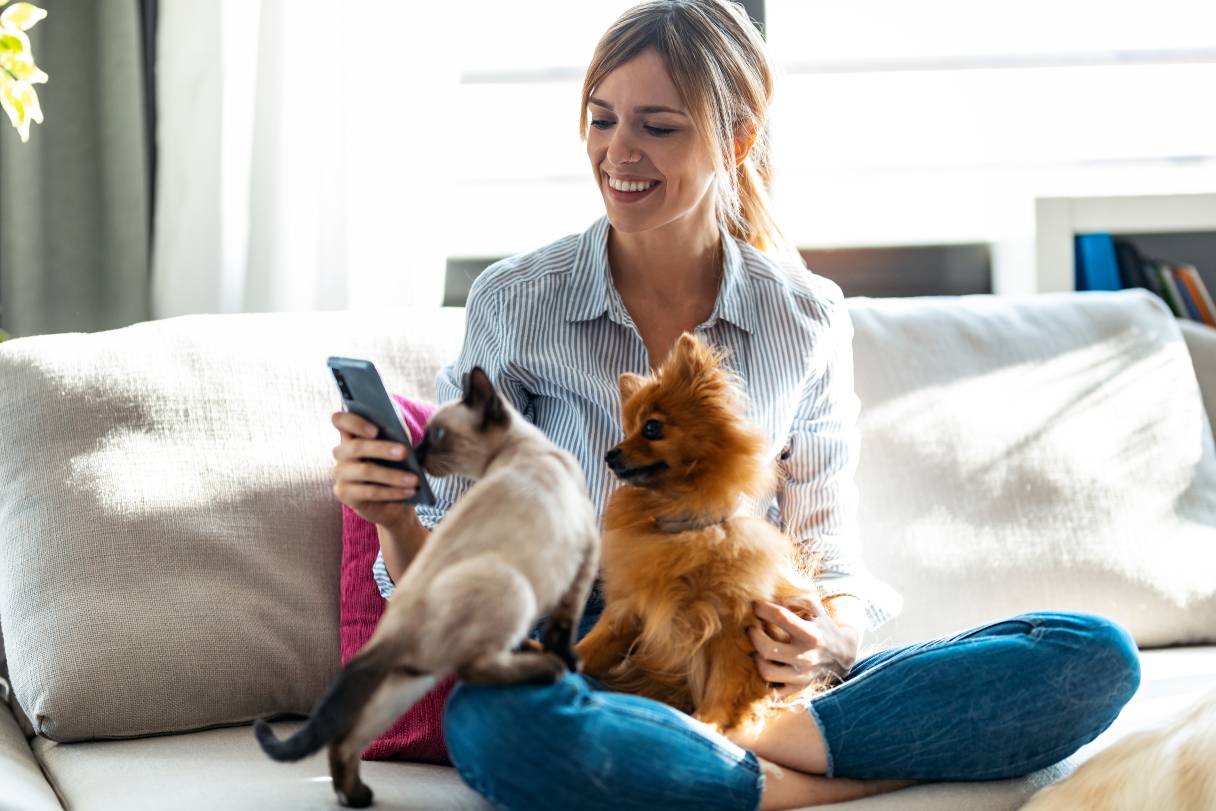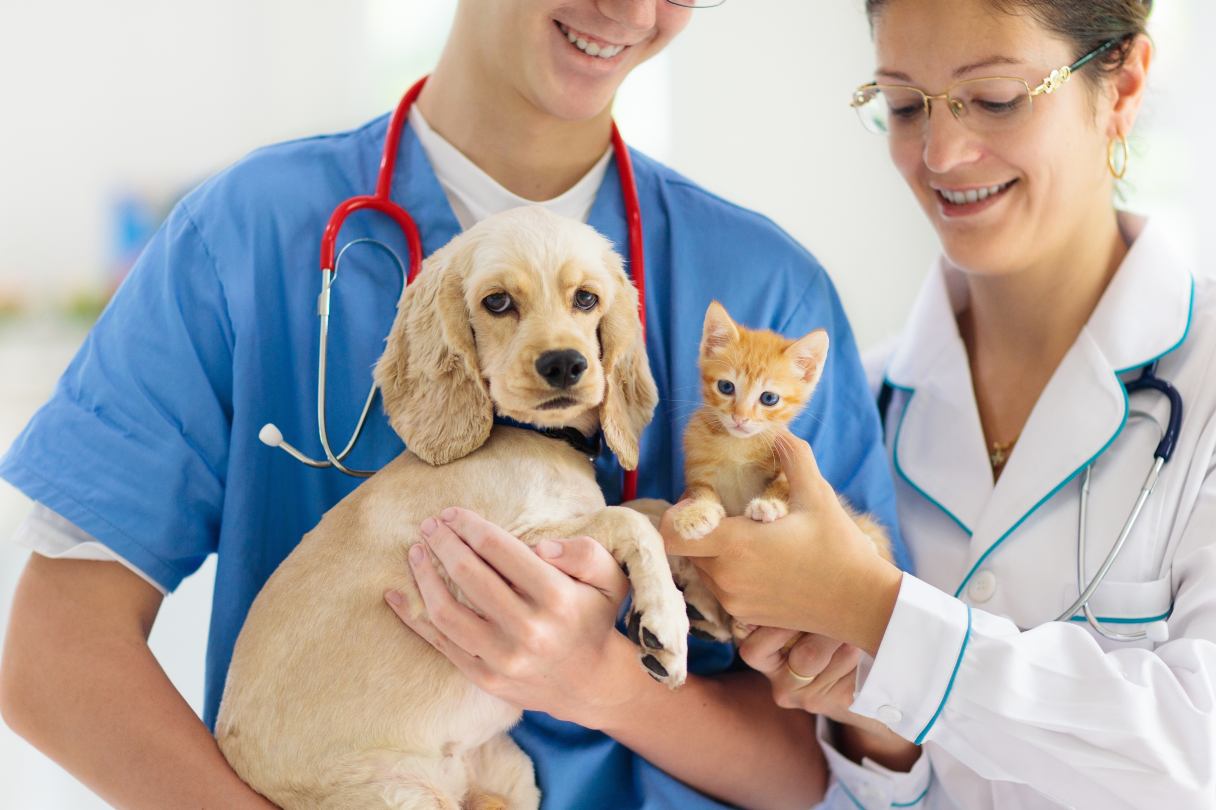As the sky lights up with colorful bursts on holidays like Independence Day and New Year’s Eve, many dogs may find themselves overwhelmed by fear. If your dog trembles at the sound of fireworks, you’re not alone. Studies show that up to half of dogs suffer from noise phobias, which can make them sensitive to loud noises.1
You might wonder if your dog will learn to accept loud noises over time, but the opposite is often true. Without treatment, a fear of fireworks can worsen or progress to include other noise sensitivities.2 These common fears can take a physical and emotional toll on your pet’s long-term well-being, but you can take action to manage your pup's anxiety around loud noises.1
Signs of Fear and Anxiety in Dogs
Recognizing the signs of fear or anxiety is the first step in helping your dog. Anxiety and stress can cause some dogs to act out, but it’s important to remember they can’t control their fearful response. Dogs displaying anxiety aren’t misbehaving; they’re uncomfortable and need your support to feel better.
Sometimes, fear is easy to recognize, while other times, it may be challenging to understand your dog’s state of mind and know when they need extra love and attention. Signs that indicate your pup is anxious include:2
- Attempting to hide or run away from the noise
- Barking, whining or other vocalizations
- Having accidents in the house
- Moving around excessively or being unable to settle down and rest
- Panting or drooling without being hot
- Trembling, shivering or shaking without being cold
- Unusual chewing or scratching
Preparing Your Dog for Fireworks Season
Preparing a plan can help reduce your dog’s fireworks stress. In the weeks or months before a big celebration, consider the following:
- Consult your veterinarian. Many dogs with a fear of fireworks benefit from prescription anti-anxiety medications, which can help them relax and prevent their fears from worsening.3
- Try desensitization and counterconditioning. This training technique helps reduce fears through gradual, controlled exposure to recorded fireworks sounds paired with a positive reward. Desensitization and counterconditioning can feel daunting, but a trusted trainer or veterinarian can guide you through each step.
- Update microchip and ID tags. If your dog becomes startled by sudden sounds, they could run away or get lost. Updating your pup’s identification tags and microchip information makes a reunion more likely should your dog get loose.3
On the morning of the anticipated fireworks, start with these tips:
- Plan out the day. Note the expected fireworks time and gather your dog’s calming tools to facilitate a comforting routine that will keep them feeling secure. A little planning can go a long way.
- Set up a safe space. Designate a quiet, comfortable area where your dog feels secure, such as a closet, interior room or even a bathtub or shower. Include a cozy bed, blankets and toys to keep them busy. You might consider a white noise machine, fan or calming music to help muffle the loud booms and create a tranquil oasis.
- Exercise early. A long walk or play session early in the day can help your pup settle more easily into their safe space later.
- Keep your dog leashed. Leashing your dog — even if your yard is fenced — can help keep them close should stray fireworks go off unexpectedly. Depending on where you live, you may want to keep your dog leashed for a few weeks before and after celebrations.
What to Do During a Fireworks Event
Dogs look to their people for guidance, especially when they’re unsure about their surroundings. If you stay relaxed, your dog will be calmed by your positive energy when the fireworks begin.
Below are several strategies that may help your dog stay calm during fireworks. Your dog is an individual, so you might need to try different interventions until you find one that works. Using several strategies together can often create just the right solution for your dog's needs.
Administer calming supplements
Herbal supplements (e.g., flower essences, valerian root), CBD oil or calming chews containing L-theanine, colostrum, melatonin, pheromones and other ingredients are popular over-the-counter options that may help reduce fireworks fears. However, they typically work best for mild anxiety or when combined with stronger medications.1
Ask your veterinarian about supplements that can be safely combined with other medicines. Look for supplements verified by the National Animal Supplement Council (NASC) to ensure they’re safe and effective for your dog.
Stay close
Being near your dog during fireworks can help them feel more secure. Sit calmly with them in their safe space to offer quiet reassurance with your presence. Light petting and a soothing, conversational tone can help pets realize that it’s OK for them to act normally, too.1
Try a vest or weighted blanket
Pressure vests or weighted blankets provide gentle pressure that effectively reduces stress for some pets, helping them feel safe, secure, snug and warm.1
Reduce sensory input
Reducing sensory inputs, like sights or smells, can help some dogs relax despite fireworks. Try a calming cap — a mesh eye screen similar to a horse fly screen — or earmuffs made for dogs. Introduce the tool in advance, and reward your pup for staying calm.
Offer distractions
Keep your dog focused on something positive by offering a treat-dispensing toy or puzzle feeder, or guide them through simple commands like “sit” or “stay.” Distracting activities can help them feel more secure and reduce the impact of scary sounds.
Don’t worry: Giving treats during fireworks won’t encourage anxiety. Instead, it will help your dog associate the event with something comforting and good.1
Should You Sedate Your Dog?
Using medication for your pet can be a difficult decision. Remember, your veterinarian can help you make the best choice for your dog’s comfort and safety, and they have your pup’s best interest in mind.
When you work with your vet to find the right medication, you can effectively and safely alleviate your dog's anxiety.1 Medications may help your dog feel better, prevent their fears from escalating and enhance the effectiveness of other calming solutions.
Have an open, honest conversation with your veterinarian to help find a sedative or medication that works with your pet’s brain chemistry. Share your concerns and ask how you can minimize any side effects. Try any medication your veterinarian prescribes well before an expected event so you can gauge its impact and fine-tune the dose.3
While fireworks can be stressful for your dog, you can work with your veterinary team to help your pup feel safe and supported. With preparation and care, you can protect their well-being and strengthen your bond.
CareCredit Credit Card Financing for Dogs
Taking good care of your pet's well-being from nose to tail is essential. Make sure to stay up to date on their regular checkups at the vet to help keep your pet happy and healthy for a lifetime of love. You can use your CareCredit credit card for pet care throughout the year for routine veterinary services as well as emergencies and surgeries.* Use our Acceptance Locator to find a veterinarian near you that accepts CareCredit.
CareCredit is there for you and your pet every step of the way; continue your wellness journey by downloading the CareCredit Mobile App to manage your account, find a provider on the go and easily access the Well U blog for more great articles, podcasts and videos.
In addition to pet care, you can also use your CareCredit credit card for dentistry, cosmetic, vision, hearing, health systems, dermatology, pharmacy purchases, spa treatments and so much more within the CareCredit network. How will you invest in your health and wellness next?
Author Bio
Elizabeth Kowalski, C.V.T., has more than 10 years of experience as a certified veterinary technician. She combines years of practical knowledge with a talent and passion for writing, creating content for pet owners and veterinary professionals.








